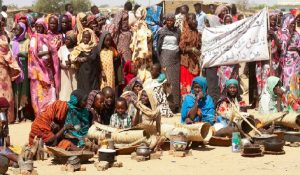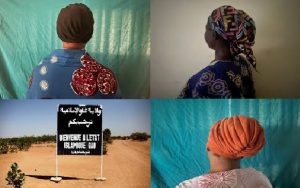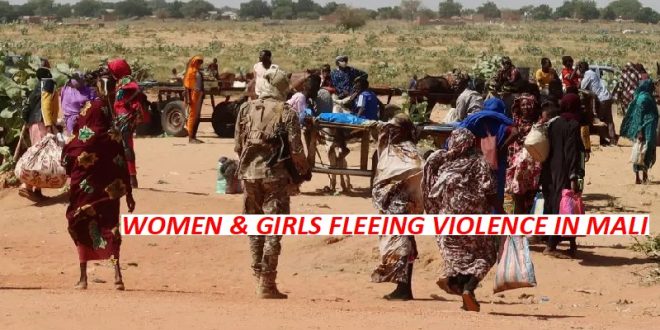11-08-2024
AYOUROUS, NIGER: It was just a few minutes before 7 o’clock on a Friday evening in early June when Kani* and 10 others fleeing violence in northeastern Mali arrived at a checkpoint in Labbezanga, close to the border with Niger.
Six armed men, three of them wearing military fatigues, at the checkpoint stopped the men and women who had begun their journey from their village on foot the previous day.
 “They (the gunmen) separated the men from the women,” Kani, 17, said. “Then three of them ordered all the four girls who made the journey to move into a small tent [the armed men had erected near the checkpoint].
“They (the gunmen) separated the men from the women,” Kani, 17, said. “Then three of them ordered all the four girls who made the journey to move into a small tent [the armed men had erected near the checkpoint].
“They took turns to rape us at gunpoint,” said Kani, who spoke to media from the home of a local legumes farmer in the Nigerien border town of Ayourou, a town on the border with Mali, where many Malian refugees have settled in recent years and where she has been living for the past several weeks since crossing into Niger.
Dressed in a brown headscarf and colorful dress, the teenager seemed frightened and depressed, her head bowed, as she spoke.
Since the ordeal, she said, she has become terrified whenever she sees a man with a gun.
“Policemen and soldiers scare me because they remind me of the people who raped me.” The rape victims were all young girls who said they begged their attackers not to harm them because they were exhausted and hungry following the long journey they had made without food and enough water.
“Everything we said fell on deaf ears,” Coumba*, another 17-year-old girl who was also raped, told media. “At some point, they started to beat us up with their guns and whips just to make sure we stopped talking.”
Coumba, who was dressed in a black headscarf and a gown with blue, brown and white colors, was sombre throughout her interview with media. The thought of the rape incident terrifies her, she said.
“Each time I remember what happened to me at the border, I become very afraid,” the teenager said. Like  Kani, she has been living at the home of the legume farmer in Ayourou since arriving in Niger. The pair had fled together from Ouattagouna in eastern Mali following a series of attacks on the town by armed groups from the so-called Islamic State in the Greater Sahara (ISGS).
Kani, she has been living at the home of the legume farmer in Ayourou since arriving in Niger. The pair had fled together from Ouattagouna in eastern Mali following a series of attacks on the town by armed groups from the so-called Islamic State in the Greater Sahara (ISGS).
Fleeing the violence, more than 10,000 Malians have taken refuge in Ayourou, an old town which stands on an eponymous island in the river Niger. Some live in tents built for refugees on dry and dusty land just outside the town, while others have found refuge with local families inside the town, where locals mostly do farming and sell foodstuffs and livestock in the market.
When Kani and Coumba first arrived in Ayourou, they spent a few days in the refugee settlement before going into the heart of town in search of work and meeting the legume farmer who offered them work on his farm and was happy to accommodate them but, despite settling in quickly in their new home, they now believe making the journey to Niger was a mistake.
“We didn’t know we were going to face another hell trying to leave Mali,” said Coumba. “If we knew anyone would attempt to rape us, we would have left Ouattagouna for another community in Mali” while the armed men, some of whom Kani and Coumba suspect were Malian soldiers because of the military camouflage shirts they were wearing, sexually abused the girls, the men they were travelling with were ordered to lie on their stomachs with their foreheads touching the ground. (Int’l News Desk)
 Pressmediaofindia
Pressmediaofindia




